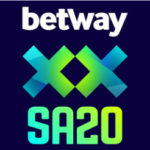
The entrenchment of Nielsen’s Digital Ad Ratings (DAR) in the South African media market, heralds a new era of audience-based advertising metrics where advertisers now know who, as opposed to just what, consumers engage with digital advertising across screens and publishers.
DAR is powered by aggregated, anonymous information from the world’s largest third party, demographic databases and Nielsen’s industry-leading calibration sources. Its real strength lies in the provision of demographics, unique audience, reach, frequency and gross rating points (GRPs) for a campaign’s total digital audience across computers, tablets and smartphones. This is also in a comparable manner to TV, thus enabling advertisers, media agencies and publishers to maximise their advertising reach across digital platforms.
 Nielsen South Africa Watch Head Terry Murphy says; “DAR provides transparent, actionable audience measurement for digital advertising. Audience measurement has thus far been limited to impressions served or unique audience and demographics from panels which do not necessarily represent the digital landscape.
Nielsen South Africa Watch Head Terry Murphy says; “DAR provides transparent, actionable audience measurement for digital advertising. Audience measurement has thus far been limited to impressions served or unique audience and demographics from panels which do not necessarily represent the digital landscape.
“The tool empowers clients to measure campaigns, irrespective of size or where they are placed, from a neutral, independent stand point. DAR also brings standardisation and accountability and helps advertisers and agencies gauge return on investment for every Rand they spend online. In addition, publishers and platforms can also show their performance to clients based on the actual audience they reach, rather than click-throughs.,” she adds.
Independent 3rd party verification
Nielsen first launched DAR in the US in August 2011, and the solution is now widely available in 29 markets, with South Africa being the first on the African continent to launch the tool. One of the biggest strengths of the DAR currency is that it provides an independent measurement service to the industry. This leads to greater transparency by preventing ad fraud and allows for better audience targeting. It also enables tracking of publishers on their performance, in terms of their accuracy in reaching a desired target market, against global norms. These norms are based on industry data, over cumulative campaigns, run over time.
“The norms are based on a large number of campaigns measured globally and are a good benchmark to assess one’s campaign. Using the DAR metrics, one can now optimise investment based on performance to achieve the stated targets,” Murphy clarifies.
Anytime, anywhere access
The DAR interface is also easy to use and gives users greater access to data and the resultant ability to analyse, assess, and apply that data in a strategic manner. Clients and agencies have access to overnight data, which provides transparency via a Live Dashboard. The web based interface allows users anytime, anywhere access, through their unique login and doesn’t require any software installation for its use.
The solution, then provides over-night details of a campaign’s full digital audience across computers, tablets, smartphones and connected devices (Smart TV, PS4, apple TVs, etc) and the ads specifically served on these platforms and gives users the options to view Unique Audience by Age and Gender – not just impressions.
Reality check
Looking at the context that DAR operates within, Murphy admits that digital initially went through something of a ‘honeymoon phase’, which saw a lot of advertisers hopping on to the digital bandwagon. Unfortunately, too many digital ads are still missing the mark – with 50.1% of impressions not seen (Source: IAS Viewability Benchmarks, Q2 2016) – which has undermined the perceived effectiveness of the medium and brought in a need for greater accountability.
She adds; “The advantage of DAR is that it brings the same rigour and accountability to digital that exists in TV advertising and measurement and thereby creates accountability and comparability for brand marketers, advertising agencies and publishers who have been seeking measurement to better understand the true audience of their digital campaigns across devices.”
- MRF Unveils Latest MAPS® Data - 20th February 2025
- The BRC announces changes to the board and updates for 2025 - 17th December 2024
- Top 50 DSTV TV programmes – October 2024 - 12th November 2024




